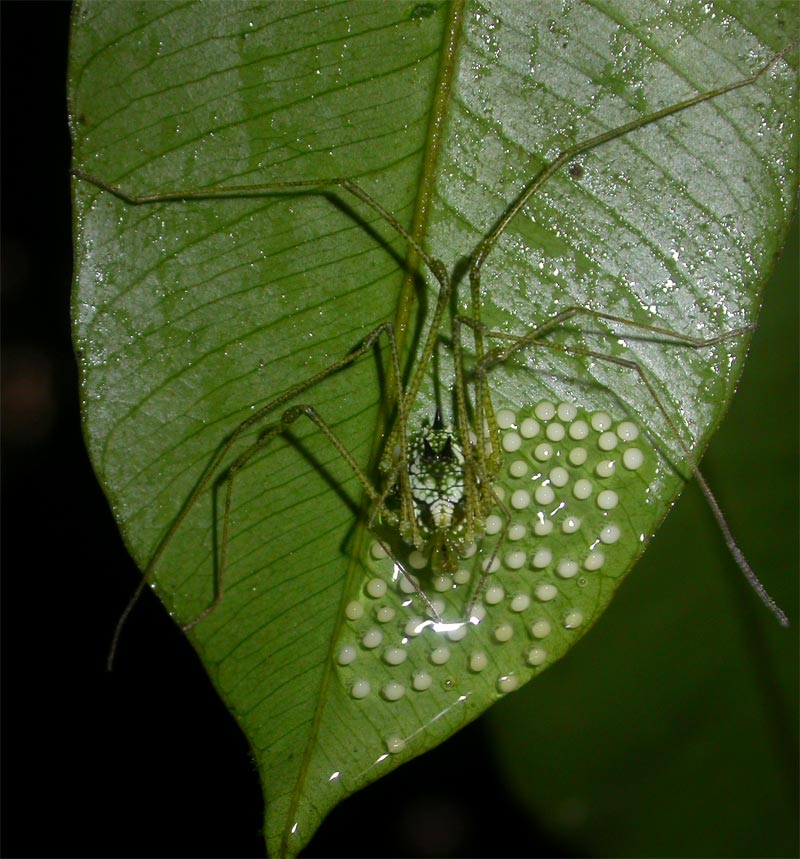Daddy Longlegs Day Care Pays Off in Longer Life, More Sex

Being a single dad may not be a drag — it actually may help a male survive and attract females, based on findings about a relative of spiders.
Single fatherhood is the rarest form of parental care in nature. Still, males are often the sole caretakers of progeny among a number of species of daddy longlegs, relatives of spiders also known as harvestmen. In these species, fathers are exclusively responsible for guarding eggs that females lay on the undersides of leaves; the males remain on the eggs nearly constantly for months.
To see why such unusual arrangements might last, researchers investigated a species of harvestman, Iporangaia pustulosa, found in the rain forests of southeastern Brazil. The researchers inspected vegetation alongside about 650 feet (200 meters) of river three times a day during four consecutive days per month over the course of a year and tagged the elusive arachnids with dabs of paint.
The researchers discovered that while caretaker males guarded the eggs, they ate very rarely, and their bodies deteriorated in size and mass. Still, these males often lived slightly longer than males that were not caretakers, and also longer than females, typically demonstrating an up to 2 percent higher chance of being alive when the researchers checked. This was possible, explained researcher Gustavo Requena, a behavioral ecologist at the University of São Paulo in Brazil, because the sedentary lifestyle of caretaking limited those spiders' exposure to predators. [Video – Baby Spider Rub]
"Caring males that stay with eggs, protecting them against egg predators, are less prone to be attacked by natural enemies than other individuals in the population that walk around," Requena said. "These findings help to explain the maintenance or even the evolution of exclusive paternal care in this lineage."
The researchers also found evidence that caretaking males have far more sex than other males do. Caretaking males often copulate with multiple females, caring for all their eggs simultaneously in a single giant clutch. "Some successful males can care for the eggs of more than 15 females," Requena said.
Given all the benefits caretaking seems to have for male harvestmen, "shouldn't all males be eager to provide care?" Requena said. In this species of harvestmen, some males may not be in good enough physical condition to afford the months-long diets caretaking demands, he explained.
Sign up for the Live Science daily newsletter now
Get the world’s most fascinating discoveries delivered straight to your inbox.
Physical demands were placed on the researchers, as well. "One intrinsic difficulty studying harvestmen is that they are mainly active at the dawn and at the night," Requena said. As such, the researchers had to use lights in the field, covering them with red filters to avoid disturbing the arachnids. This affected their own vision, "with several occasions of slipping rocks into the water and hitting head in tree trunks and branches."
In addition, since the researchers did not know the exact timing of this species' breeding season, they had to conduct fieldwork all year round. "All this together put me in a camping tent during winter, when temperature could reach 5 degrees C," or 41 degrees Fahrenheit, Requena said. "That would mean nothing for a New Yorker but is freaking cold for a Brazilian guy."
The scientists detailed their findings online Oct. 10 in the journal PLoS ONE.











